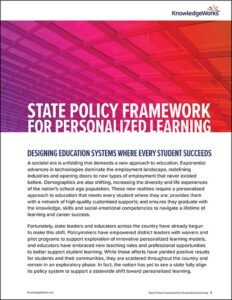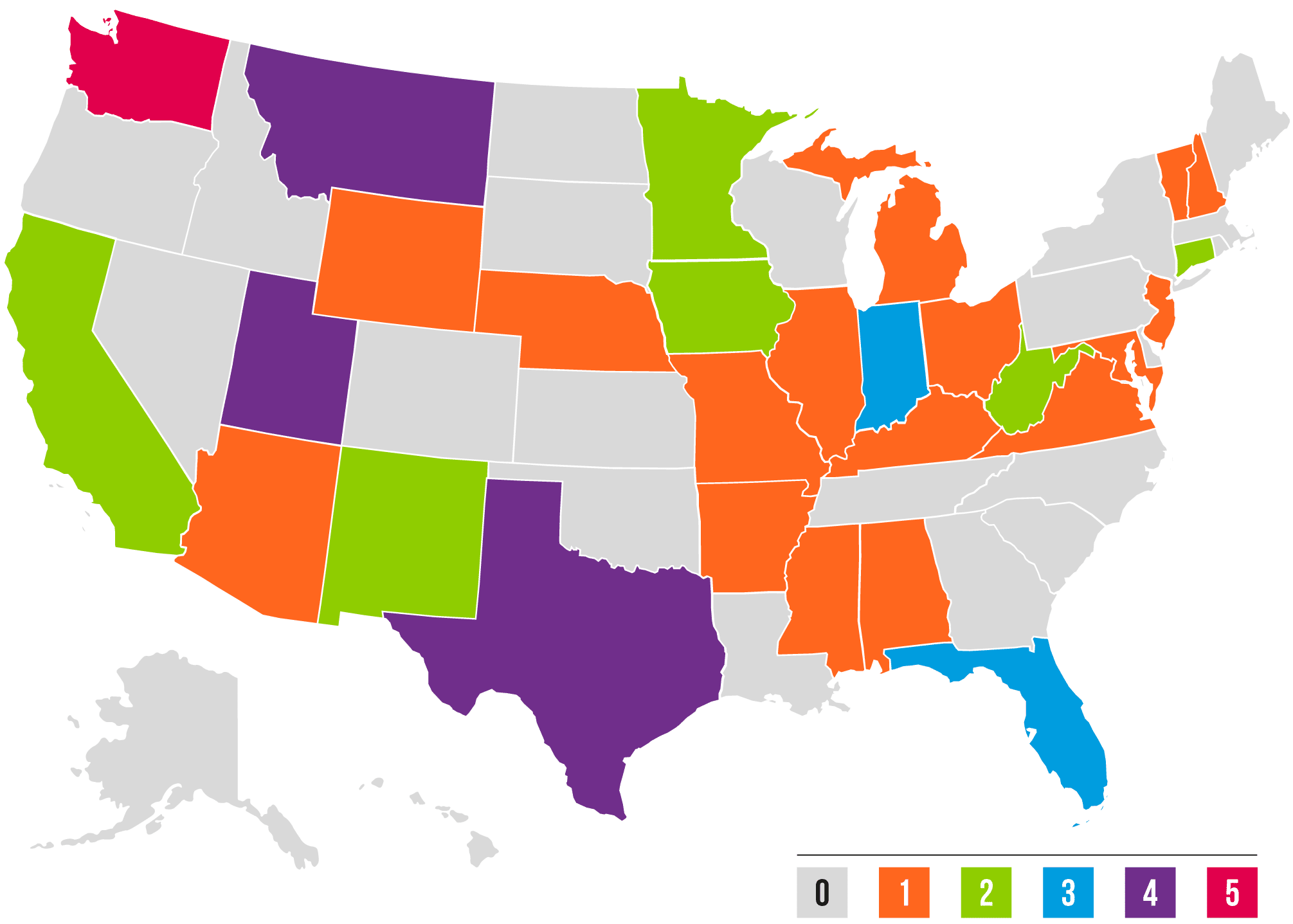State Policy Framework
for Personalized Learning
Designing Education Systems Where Every Student Succeeds
Working at both the state and federal levels, KnowledgeWorks partners with policymakers, educators and business and community leaders to develop a vision for student-centered systems transformation.
Our team then helps policymakers advance this vision by cultivating shared ownership among diverse stakeholders, establishing system alignment; closing opportunity and outcomes gaps; and scaling evidence-based teaching and learning models.
At KnowledgeWorks, we help state policymakers design education systems where each student benefits from high-quality personalized learning experiences that prepare them to thrive in postsecondary, the workforce and in their communities.
How our framework helps states
Four Design Strategies
The framework is divided into four strategies for system design:
- Building capacity
- Empowering student learning
- Cultivating system change
- Ensuring quality
Four Core Commitments
The framework outlines core commitments states should be mindful of for quality transformation and should strive for increasing evidence of each commitment as they work to mature their policy systems.
Twelve Policy Conditions
The framework includes a set of policy conditions states will need to tackle as they refine and transform their policy system to one that ensures all students in the state benefit from high-quality personalized learning experiences.
Our collaborative engagements with policymakers and education stakeholders across the country shapes our expertise, enabling KnowledgeWorks to advance equitable and sustainable policy solutions at every level of the education system. Our comprehensive policy approach ensures strong educational alignment focused on personalized, competency-based learning centered around the student.
As more policymakers, systems leaders and community members commit to scaling and sustaining personalized, competency-based learning, the implementation of student-centered learning in the classroom will continue to grow throughout the country — leading to better outcomes for all students.



